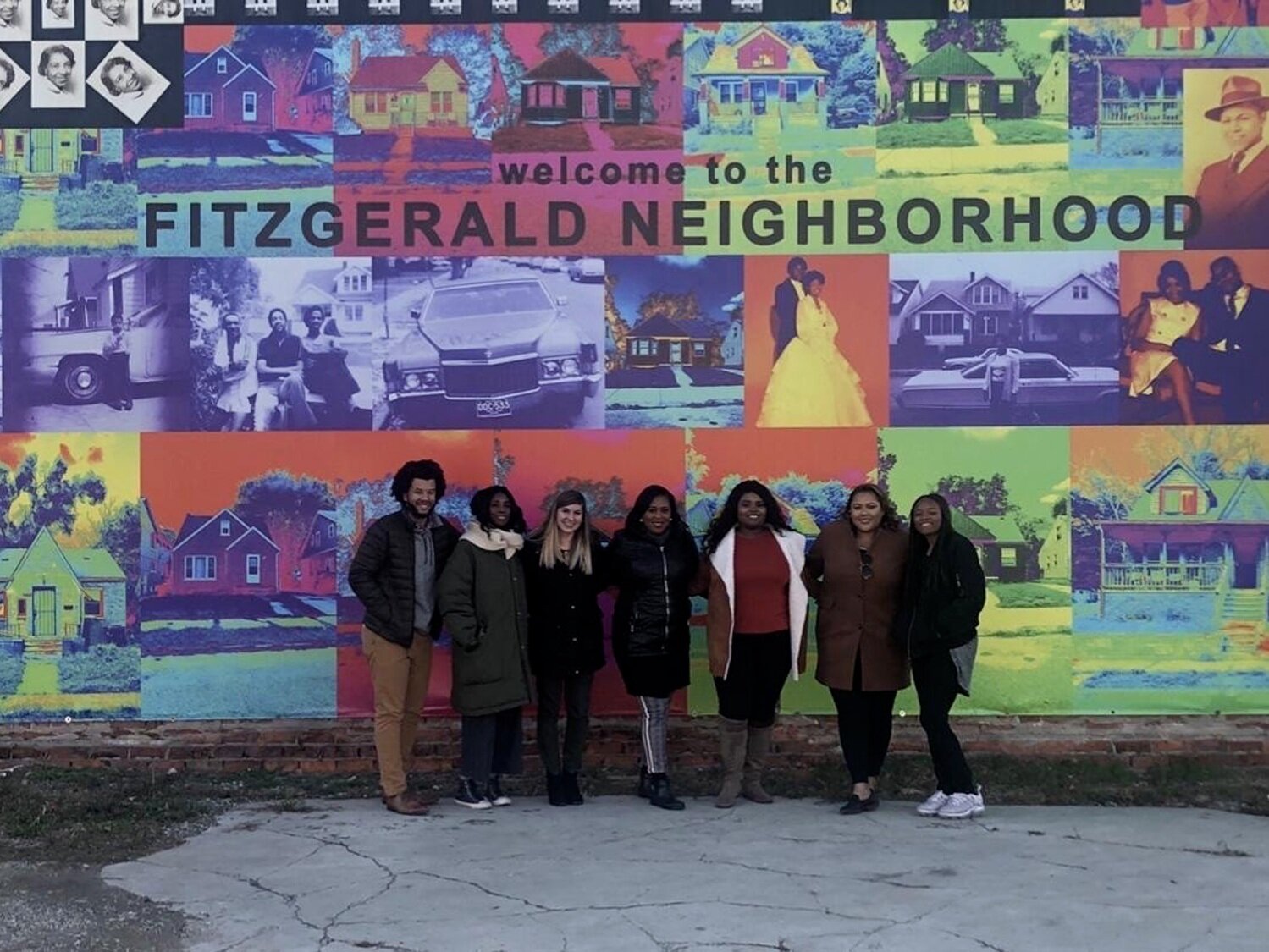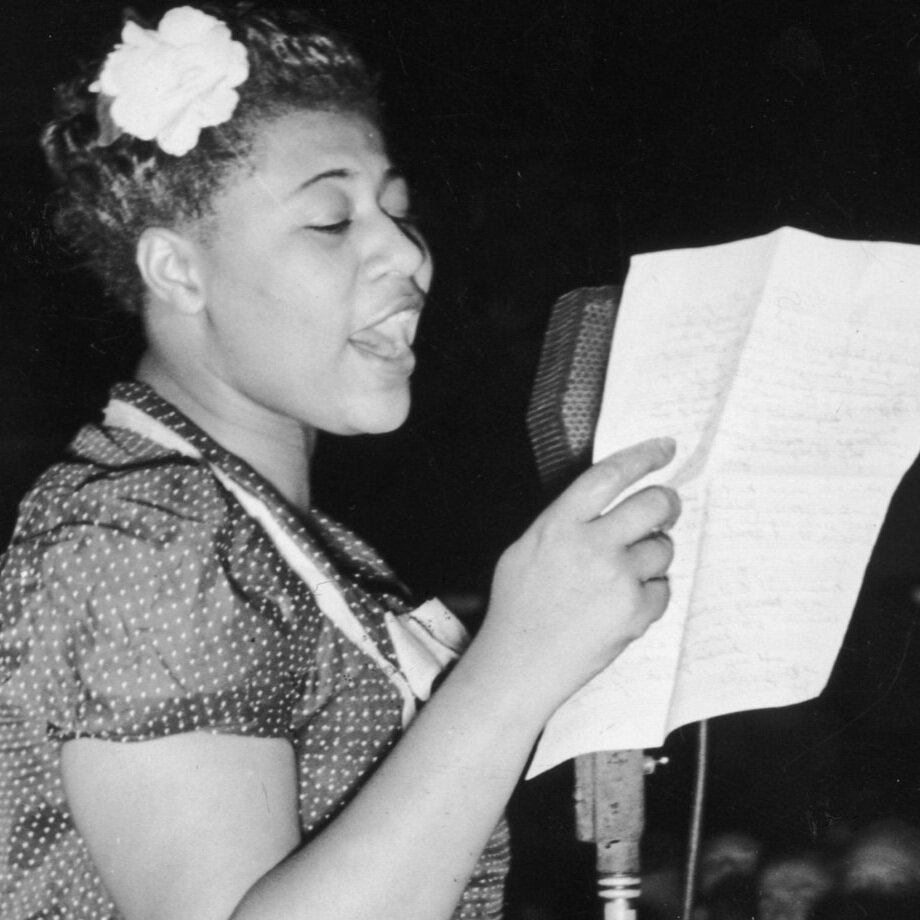Celebrating Our “First Lady of Song”
“It isn’t where you came from; it’s where you’re going that counts.”
As newly inducted members of Detroit’s Fitzgerald neighborhood, we take great pride in our new home on Detroit’s west side. Nestled between Livernois and the Lodge Freeway, the neighborhood contains a diverse community of residents, block clubs and businesses, all within its one square mile radius.
Another important aspect of the neighborhood is its rich history of Black excellence in the arts. Pieces from world-renowned muralist Charles McGhee can be seen outside of The School at Marygrove and a newly-opened park is named after the legendary jazz singer, Ella Fitzgerald. Though the neighborhood predates her, Ella Fitzgerald exemplified a resiliency and creative spirit that radiate throughout the community that shares her name.
To celebrate Women’s History Month, we wanted to learn more about the artist nicknamed “The First Lady of Song,” her impact in the music industry and how she became such an important influence in Detroit.
Finding the Spotlight
(Source: prisonpublicmemory.org)
Ella Jane Fitzgerald was born in Newport News, Virginia. on April 25, 1917. As a child, Fitzgerald was talented in both athletics and the arts. Whether it was on a stage or playing in a neighborhood game of baseball, she was unafraid to share her talents with the world around her.
Fitzgerald’s first big opportunity came in 1934 when she was selected to perform at Amature Night at the Apollo Theater in New York City. Despite being nervous about how her act would compare to the others, Fitzgerald quickly found her place in the spotlight and gave a stunning performance. This opportunity eventually led to more talent shows, tours and eventually a record deal. In 1938, at the age of 21, Fitzgerald sold more than 1 million albums and appeared on the pop music charts for 17 straight weeks.
Growing Detroit Roots
(Source: WXYZ Detroit)
At the peak of her career, Fitzgerald was a frequent performer at several clubs in Detroit’s Paradise Valley, affectionately known as Black Bottom. With her signature handkerchief in hand, she would serenade crowds at historic venues like the 606 Horseshoe Lounge, Club Three Sixes, Graystone Ballroom, Fox Theatre, Music Hall and the Paradise Theater.
However, some of her greatest performances in the city took place at the famous Baker’s Keyboard Lounge in the Fitzgerald neighborhood. There, she joined iconic performers like Miles Davis, Sarah Vaughn, Cab Calloway and Nat “King” Cole in Detroit’s vibrant jazz music scene during the 1940s, 50s and 60s.
More Than A Singer
Fitzgerald’s talents as a performer were unquestionable, but she was so much more than a singer. Throughout her career, Fitzgerald proved to be a trailblazer for women in the music industry and was unafraid to stand up for her principles.
(Source: The Current)
In 1958, she became the first African-American to win a Grammy and would go on to received a total of 13 awards in addition to the Recording Academy Lifetime Achievement Award in 1966.
More importantly, Fitzgerald and her manager Norman Granz were also strong advocates for the Civil Rights movement and refused to accept any form of discrimination against them or their band while touring. Even in southern cities, the pair would only agree to play integrated shows and even insisted that the “Negro” and “White” signs be removed from venues’ bathrooms during performances.
With the support of Granz and her fans, Fitzgerald worked tirelessly to eliminate racial and social barriers that prevented Black artists from reaching the opportunities they deserved. In short, Fitzgerald did not just sing. She helped create a more equitable industry for other women and artists of color, even when it meant putting her career on the line.
(Source: ModelD Media)
Long after her days of performing at Baker’s Keyboard Lounge, Ella Fitzgerald still resonates throughout the neighborhood. With a major greenway development planned for the new Ella Fitzgerald Park and the continued growth of local community organizations and businesses, her legacy will live on with a new generation of community members.
We are grateful for the fearless way she shared her talents with the world and, in the process, became an important part of women’s history, Black history, and the history of our city.
Enjoy some of Ella Fitzgerald’s best work with this playlist!
Interested in learning more about Ella Fitzgerald and the Fitzgerald Neighborhood? Check out these resources!
Ella Fitzgerald Biography (ellafitzgerald.com)
Michigan and the world remember jazz singer Ella Jane Fitzgerald at 100! (WXYZ Detroit)
New Fitzgerald greenway offers clues on what's next with Detroit's biking infrastructure (ModelD Media)
A closer look at the Fitzgerald community (Detroit Public TV)
The Neighborhoods Fitzgerald Profile(The Neighborhoods)





